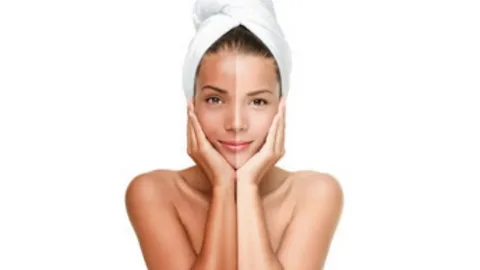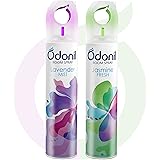In recent years, the pursuit of lighter skin has become a significant topic of discussion in Riyadh, the capital of Saudi Arabia. This trend reflects deeper cultural perceptions of beauty and status, prompting a closer examination of the motivations behind Skin whitening in Riyadh, the products available, and the associated health implications.
Cultural Significance of Skin Tone
In many societies, particularly in the Middle East and parts of Asia, lighter skin is often associated with beauty, wealth, and social status. This perception has historical roots, dating back to a time when fair skin indicated a life sheltered from the sun and manual labor. As a result, a complex interplay of tradition, modernity, and media influence has shaped the beauty ideals prevalent in Riyadh.
In contemporary Saudi culture, these ideals are perpetuated through advertising, social media, and celebrity endorsements. Skin whitening products often promise not only aesthetic enhancement but also the perceived social advantages of conforming to these beauty standards. For many women in Riyadh, achieving a lighter complexion is seen as a pathway to greater acceptance and desirability.
The Skin Whitening Market
The demand for skin whitening products in Riyadh has led to a booming market. A vast array of creams, lotions, and serums is readily available in beauty shops, pharmacies, and online platforms. These products range from high-end brands to inexpensive options, making them accessible to a wide demographic.
However, the ingredients in many of these products warrant careful scrutiny. Commonly used agents such as hydroquinone and mercury have raised significant health concerns. Hydroquinone can lighten skin effectively but may cause skin irritation and other serious side effects, including a condition called ochronosis, which leads to a blue-black discoloration of the skin. Mercury, often found in unregulated products, poses severe health risks, including kidney damage and neurological issues.
The Saudi Food and Drug Authority (SFDA) has taken steps to regulate harmful substances in cosmetic products, yet many unlicensed items still circulate in the market, making consumer vigilance crucial.
Health Implications
As the popularity of skin whitening continues to grow, healthcare professionals in Riyadh stress the importance of safety and informed choices. Dermatologists often warn against the use of unregulated products and recommend consulting a licensed dermatologist before starting any skin treatment.
For those seeking to improve skin tone or reduce pigmentation, safer alternatives are available. Professional treatments such as chemical peels, laser therapy, and microdermabrasion can offer effective results without the risks associated with over-the-counter products. These procedures are performed under medical supervision, ensuring safety and efficacy.
Furthermore, adopting a comprehensive skincare routine that emphasizes sun protection is vital in Riyadh’s harsh climate. Regular use of sunscreen can prevent sun damage and pigmentation issues, promoting healthier skin overall.
Changing Perspectives on Beauty
While the desire for lighter skin remains prevalent, a shift in societal attitudes is beginning to take shape. Influencers and advocates in Riyadh are increasingly promoting messages of self-acceptance and body positivity. Social media platforms serve as powerful tools for challenging traditional beauty norms and celebrating diverse skin tones.
This cultural transformation encourages individuals to embrace their natural beauty and reject the notion that lighter skin is synonymous with attractiveness. Many are finding empowerment in self-love, promoting a broader definition of beauty that values uniqueness and individuality over conformity.
The Role of Education and Awareness
As awareness of the potential dangers associated with skin whitening practices grows, education plays a crucial role in shaping consumer behavior. Initiatives aimed at promoting skin health and the risks of harmful products can empower individuals to make informed choices.
Public health campaigns in Riyadh that focus on skin care education can help dispel myths surrounding beauty standards. By fostering a culture of acceptance and understanding, Riyadh can encourage individuals to prioritize health and well-being over societal pressures.
Conclusion
The issue of skin whitening in Riyadh encapsulates a complex interplay of cultural values, health considerations, and changing societal norms. While the pursuit of lighter skin continues to be a prevalent aspiration, a growing movement advocating for self-acceptance and the celebration of diversity is emerging.
By prioritizing health, safety, and education, individuals can navigate the intricate landscape of beauty standards with confidence. Embracing natural skin tones and promoting inclusive definitions of beauty can lead to a healthier, more accepting society. Ultimately, the conversation around skin whitening is evolving, shifting from a fixation on lightness to a broader appreciation for the beauty inherent in every skin tone.
Lexton 36 Feet Long 40 LED Power Pixel Serial String/Fairy Light | Plug Sourced | Suitable for Home & Outdoor Decoration, Diwali, Christmas, Ramadan, Wedding, Party, Festival (Pack of 1 Warm White)
₹99.00 (as of 7 November, 2024 18:26 GMT +05:30 - More infoProduct prices and availability are accurate as of the date/time indicated and are subject to change. Any price and availability information displayed on [relevant Amazon Site(s), as applicable] at the time of purchase will apply to the purchase of this product.)Odonil Room Air Freshener Spray - 440ml Combo (Pack of 2, 220ml each) | Lavender Mist & Jasmine Fresh | Nature Inspired Fragrance for Home & Office | Long Lasting Fragrance
₹199.00 (as of 7 November, 2024 18:26 GMT +05:30 - More infoProduct prices and availability are accurate as of the date/time indicated and are subject to change. Any price and availability information displayed on [relevant Amazon Site(s), as applicable] at the time of purchase will apply to the purchase of this product.)Amazon Brand - Presto! Garbage Bags Medium 180 Count|19 x 21 inches Black , For Dry & Wet waste|30 bags/roll (Pack of 6)
₹335.00 (as of 7 November, 2024 18:26 GMT +05:30 - More infoProduct prices and availability are accurate as of the date/time indicated and are subject to change. Any price and availability information displayed on [relevant Amazon Site(s), as applicable] at the time of purchase will apply to the purchase of this product.)JIALTO Adhesive Wall Hook 10 Pack Heavy Duty Wall Hooks for Hanging Wall Decor Items Home Decor Items Wall Clock Hanging Hooks Photo Frame Hooks for Wall Without Drilling Nail Hook Key Holder
₹229.00 (as of 7 November, 2024 18:26 GMT +05:30 - More infoProduct prices and availability are accurate as of the date/time indicated and are subject to change. Any price and availability information displayed on [relevant Amazon Site(s), as applicable] at the time of purchase will apply to the purchase of this product.)Pigeon Polypropylene Mini Handy and Compact Chopper with 3 Blades for Effortlessly Chopping Vegetables and Fruits for Your Kitchen (12420, Green, 400 ml)
₹169.00 (as of 7 November, 2024 18:26 GMT +05:30 - More infoProduct prices and availability are accurate as of the date/time indicated and are subject to change. Any price and availability information displayed on [relevant Amazon Site(s), as applicable] at the time of purchase will apply to the purchase of this product.)Discover more from The General Post
Subscribe to get the latest posts sent to your email.





